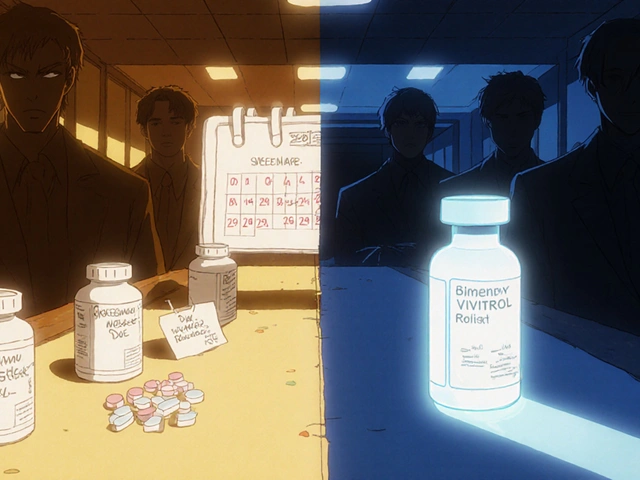Enteric infections: fast help for diarrhea, vomiting, and gut bugs
Sudden diarrhea, cramps, or vomiting? That’s usually an enteric infection — an infection of the gut caused by bacteria, viruses, or parasites. Most cases are unpleasant but short-lived. This page gives clear, practical steps so you know what to do, when to get help, and how to avoid getting sick again.
What causes them and how they feel
Common causes include bacteria like Salmonella, E. coli, Campylobacter and Shigella; viruses such as norovirus and rotavirus; and parasites like Giardia. Symptoms typically start with stomach cramps, loose stools, nausea, sometimes fever, and sometimes blood in the stool. Symptoms that pop up quickly after a meal often point to food poisoning. If symptoms come on slowly or last longer, think about parasites or inflammatory conditions.
Diagnosis usually comes from a doctor ordering a stool test — culture, rapid antigen or PCR — when symptoms are severe, bloody, or persistent. Quick tests help your provider decide if you need antibiotics or other targeted treatment.
When to act and what to do at home
First, hydrate. Drink small sips often. Oral rehydration solutions (ORS) are best because they replace salt and sugar in the right balance. Avoid sugary sodas and alcohol. Eat bland, easy foods once vomiting eases — plain rice, bananas, toast — but don’t force food if you’re not ready.
A few simple rules: don’t use anti-diarrheal drugs if you have high fever or bloody stools (they can make some infections worse). Antibiotics help some bacterial infections, but not viral ones — and using them when not needed can cause harm. If a doctor prescribes an antibiotic, follow the dose and finish the course. For practical drug advice, check our ciprofloxacin guide for safe use: How to Take Ciprofloxacin Safely.
Probiotics can ease symptoms for some people, but the evidence varies by strain and condition. If you’re curious, ask your provider which product and dose makes sense for your situation.
Related reading: if you’re managing long-term bowel issues that mimic infections, see our articles on natural approaches and long-term impacts of inflammatory gut disease: Natural Remedies for Ulcerative Colitis and Understanding the Lasting Impact of Ulcerative Colitis.
If you travel, be picky about food and water: avoid raw street salads, ice made from tap water, and undercooked meats. Vaccines (like rotavirus for children) cut risk for certain viral enteric infections.
Quick checklist: hydrate with ORS, rest, watch for red flags (fever over 38.5°C/101.3°F, blood in stool, severe belly pain, low urine output, fainting), and see a doctor if symptoms worsen or don’t improve in 48–72 hours.
Want clear next steps? If symptoms are mild, treat at home and monitor. If you hit any red-flag signs, contact a healthcare provider right away — better safe than sorry.
In my latest blog, I discuss the anticipated impact of enteric infections in a post-pandemic world. It's clear that the aftermath of COVID-19 could potentially lead to an increase in these types of infections due to weakened immune systems and disrupted healthcare services. We delve into how maintaining good hygiene and sanitation practices can help prevent these diseases. Also, we highlight the importance of a robust healthcare system that's equipped to deal with such challenges. Lastly, we emphasize the need for continued research and surveillance to better understand and tackle enteric infections in the future.
Read more






